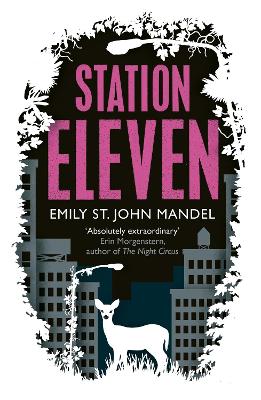I could have loved the characters more— it was Frank and Miranda who got to me— and I could have loved the Hollywood parts more, but overall, I didn’t mind that the book seems intent on staying detached. It suits the subject. And it suits the people.
Kirsten and August walked mostly in silence. A deer crossed the road ahead and paused to look at them before it vanished into the trees. The beauty of this world where almost everyone was gone. If hell is other people, what is a world with almost no people in it? Perhaps humanity would simply flicker out, but Kirsten found this thought more peaceful than sad. So many species had appeared and then later vanished from this earth; what was one more? How many people were left even now?
If you needed a reason why post-apocalyptic fiction appeals to me. Done right, it lets us see what we’re not seeing, all around us. I might never fly through an airport again without seeing Station Eleven and the end of the world, and I don’t believe that’s a bad thing.
On silent afternoons in his brother’s apartment, Jeevan found himself thinking about how human the city is, how human everything is. We bemoaned the impersonality of the modern world, but that was a lie, it seemed to him; it had never been impersonal at all. There had always been a massive delicate infrastructure of people, all of them working unnoticed around us, and when people stop going to work, the entire operation grinds to a halt. No one delivers fuel to the gas stations or the airports. Cars are stranded. Airplanes cannot fly. Trucks remain at their points of origin. Food never reaches the cities; grocery stores close. Businesses are locked and then looted. No one comes to work at the power plants or the substations, no one removes fallen trees from electrical lines. Jeevan was standing by the window when the lights went out.
There was a stupid moment or two when he stood near the front door, flipping the light switches. On/off, on/off.
“Stop it,” Frank said. “You’re driving me crazy.”
